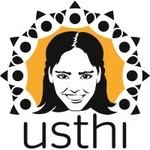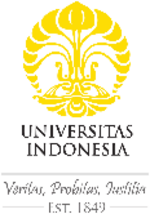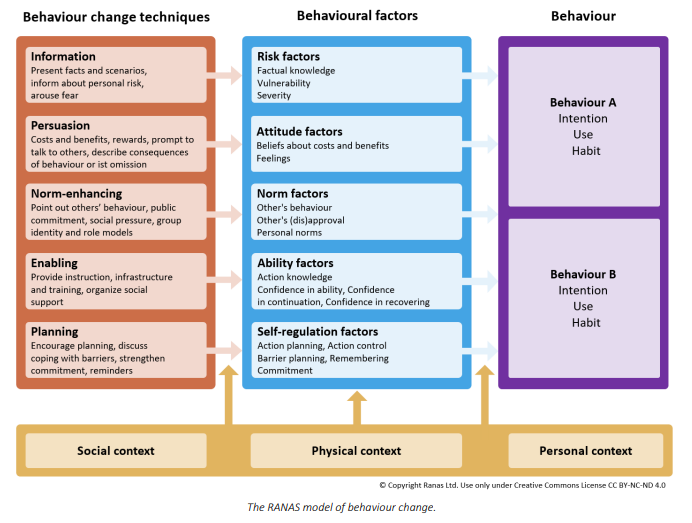Department Sanitation, Water and Solid Waste for Development
Enhancing Waste Segregation Behavior
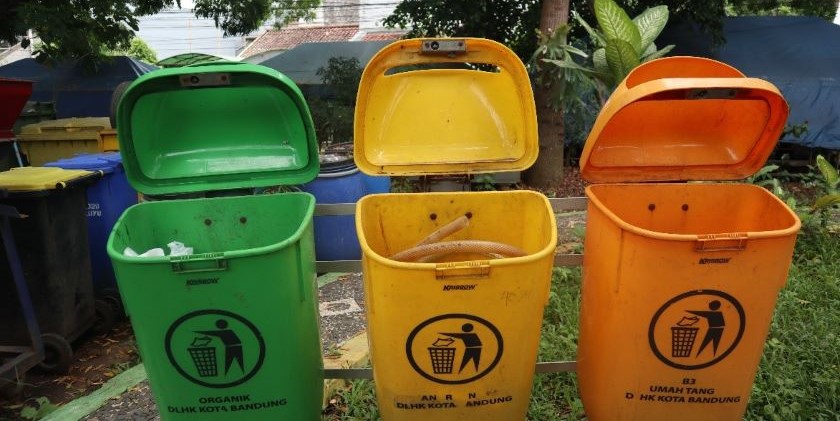
Sustainable solid waste management relies heavily on proper waste segregation at source. Lack of segregation may compromise circular economy and resource conservation efforts. However, motivating households to consistently segregate multiple waste fractions is a complex challenge.
To better understand and strengthen long-term, effective behavioral change in the waste sector, we aim to apply a systematic approach. Psychological frameworks, such as the RANAS model, offer deeper insights into the psychological factors that drive or hinder behaviors. This allows the design of more targeted, effective campaigns and to evaluate the impact of these interventions more comprehensively.
The RANAS Model
Developed at Eawag, the RANAS model is a systematic framework designed to understand and influence behavior change. It breaks down behavior into five key factors:
- Risk – Perceived vulnerability and severity related to the behavior.
- Attitude – The positive or negative evaluation of the behavior.
- Norm – Social influences and perceived norms surrounding the behavior.
- Ability – The individual’s perceived confidence in performing the behavior.
- Self-regulation – Strategies for planning, goal-setting, and overcoming barriers.
By addressing these key behavioral drivers, RANAS helps to design targeted interventions that are context-specific and culturally adapted.
After being successfully utilized in the hygiene sector, we are now exploring this approach’s potential to improve waste-related behaviors. By integrating it into our waste segregation efforts, we aim to improve how we design interventions, making them more targeted and suited to the specific challenges of waste management.
Indonesia (2023 – 2024)
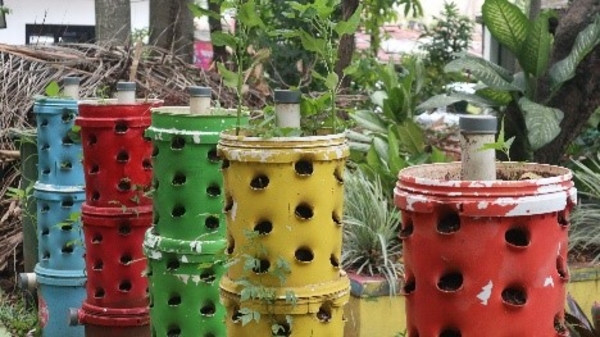
Project: Citarum Action Research Program (CARP)
Location: Padamukti, Indonesia
Timeline: 1 year
Behavior: Organic waste segregation
Partners: Monash University, YPBB, Universitas Indonesia
Basic information on project: This program aims to improve waste management practices and reduce pollution in the Citarum River Basin. One key element is piloting a TPS3R (Reduce, Reuse, Recycle Waste Transfer Station) in Kampung Padamukti. Its long-term sustainability relies on household waste segregation and effective separate collection of organics, recyclables and residual waste. In order to enhance this behavior, the RANAS model was applied to identify key behavioural factors allowing to create targeted and tailored interventions.
Peru (2023 – 2024)

Project: Waste segregation at UNI campus ecological points
Location: Universidad Nacional de Ingeniería (UNI), Lima, Peru
Timeline: 1 year
Behavior: Paper/cardboard and plastic waste segregation
Partners: UNI, GIRDS
Basic information on project: This project is a research project aiming at improving waste segregation at the ecological points of the UNI campus. The RANAS systematic approach was used together with waste audits at the ecological points to design a tailored awareness raising campaign. A scientific publication is expected.
Côte d’Ivoire (March 2023 – Oct 2023)
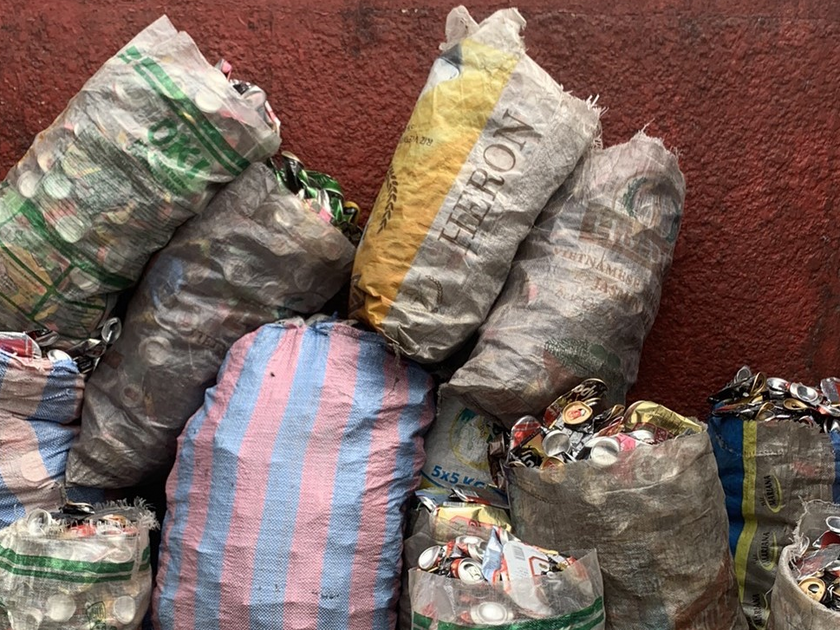
Project: Drivers and barriers of waste segregation
Location: Agouéto, Abobo, Abidjan, Côte d’Ivoire
Timeline: 8 months
Behavior: Recyclables waste segregation
Partners: CSRS
Basic information on project: A RANAS survey was conducted in Abidjan in July 2023 as part of a Master Thesis. Results showed that Ability (Confidence in performance) and Norm (Personal importance) were key factors for waste segregation in the given context. The study highlighted that waste segregation was perceived as making people more prone to contract diseases and was associated as a practice for very poor or affluent foreigners only, both affecting negatively on the risk and norm factors respectively.
Publication: Sandec News 2023
India (Sept 2024- Sept 2025)
Project: Penthakata – Optimization of Waste segregation for Effective Recovery (POWER)
Location: Penthakata, Puri, Odisha, India
Timeline: 1 year
Behavior: Waste segregation
Partners: Usthi foundation, Sarek Waste and Resource Management Pvt. Ltd.
Basic information on project: The project contributes to improving waste segregation at household level and waste collection in a pilot area to enhance recycling rates in Penthakata.
Publications on waste segregation:
RANAS manual
Sandec News
Manuscript
Partners





